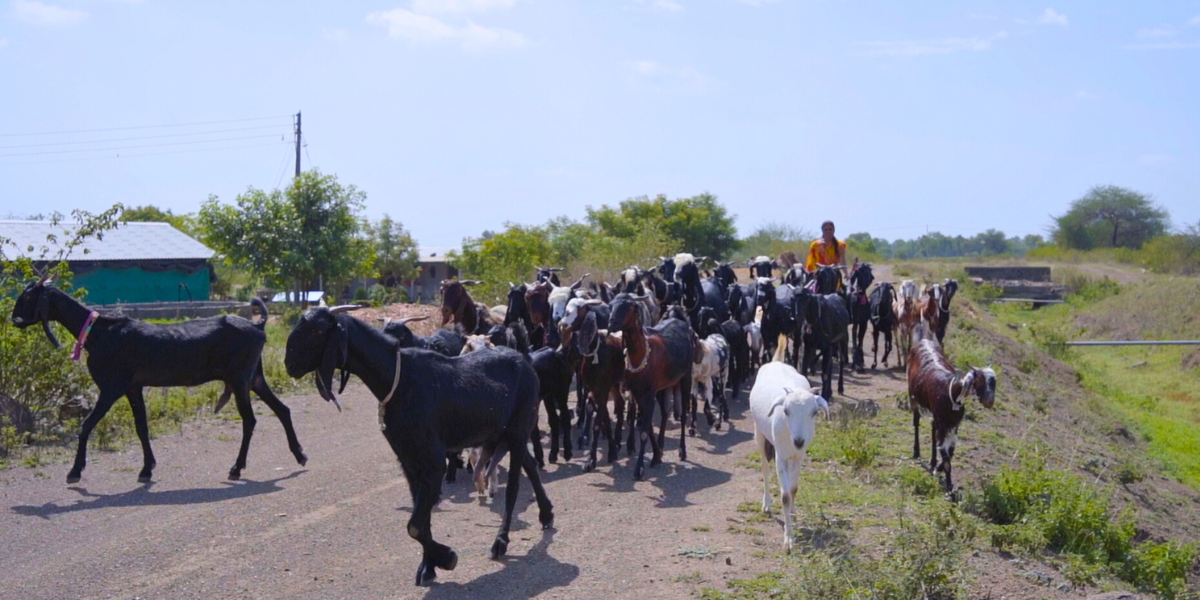
FUNDED BY: BAJAJ FINANCE LTD.
PROJECT DURATION: 2023-26
AREAS OF OPERATION: 20 VILLAGES, AKOLE BLOCK, AHMEDNAGAR, MAHARASHTRA
Overview:
The Goat-Based Livelihood Enhancement Project aims to improve the socio-economic status of marginalized communities in Akole Block, Maharashtra. By emphasizing the empowerment of women, financial literacy, and market access for goat products, the project addresses critical challenges such as high goat mortality, inadequate infrastructure, and limited market access. Utilizing the Pashusakhi model and modern goat-rearing techniques, the project fosters sustainable livelihoods and community resilience.
Key Achievements:
JLG Formed
- Successfully formed 410 Joint Liability Groups (JLGs) with 2,050 women, improving access to project services and promoting collective empowerment through monthly meetings on goat health, vaccination, and financial literacy.
Trainings and Exposure Visits:
- Delivered thorough training on goat business management, with hands-on demonstrations in vermicomposting and silage preparation, empowering 1,751 members.
- Organized exposure trips for 199 JLG leaders at MPKV Rahuri, enriching their understanding of goat business and rearing techniques.
Veterinary Services:
Delivered veterinary services, improving goat health and reducing mortality. Treated 1,706 goats during the year.
- Vaccination Camps: Conducted deworming, PPR, and vaccination camps in 20 villages, resulting in 13,959 goats being vaccinated.
- Pashusakhi Model: Established a dedicated team of Pashusakhis providing essential first aid and vaccination services to goats, ensuring timely healthcare.
Economic Security:
- Goat Insurance: Insured 331 goats, with six claims submitted and three approved, totaling Rs. 15,000, offering financial protection.
- Asset Building: 253 goats purchased by JLG members, boosting assets for 102 families, and improved goat sheds for 190 families enhanced rearing practices.
Sustainable Practices: Distributed 13 Chaff Cutter cum Ata Chakki machines, held 214 fodder demonstrations, and promoted organic farming through 60 vermicomposting demos.

